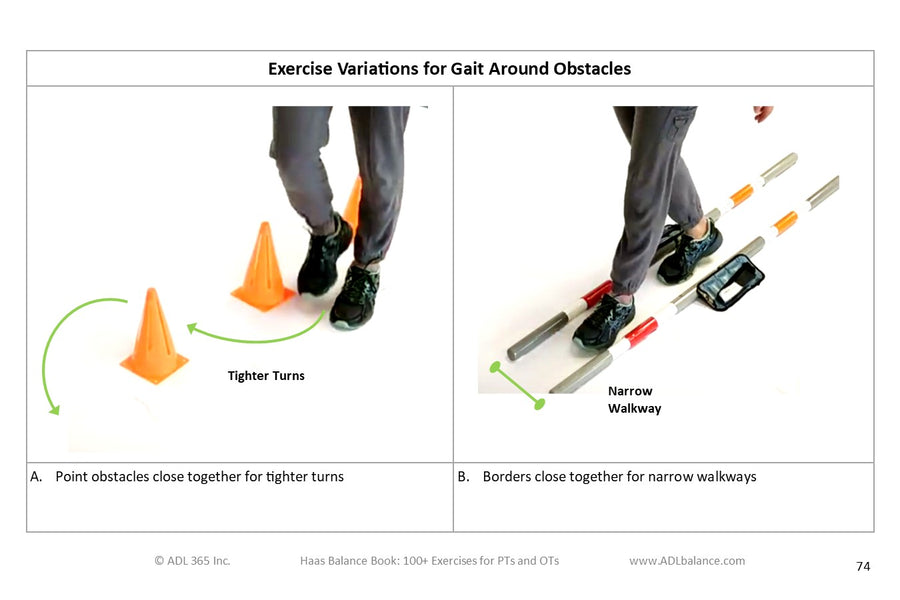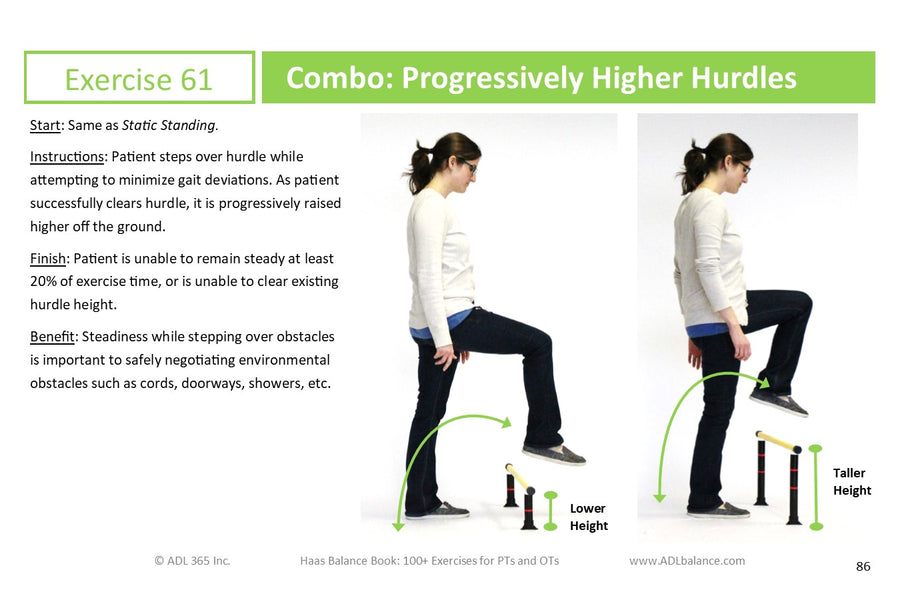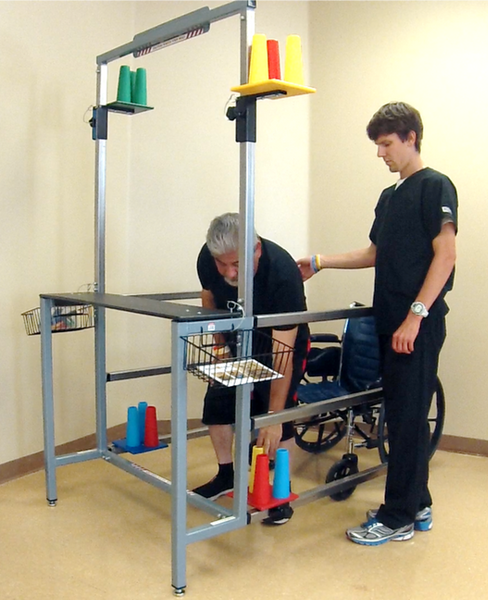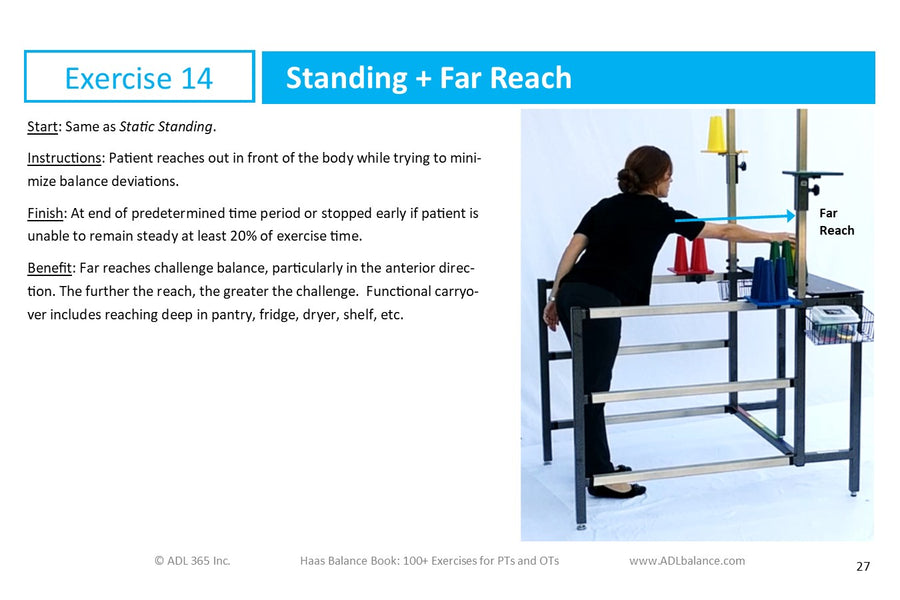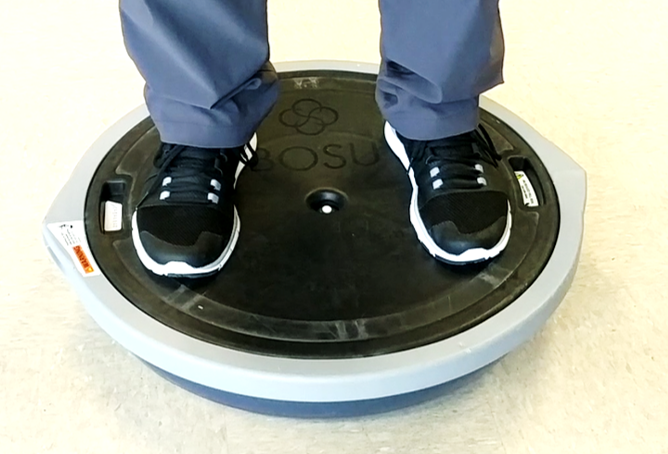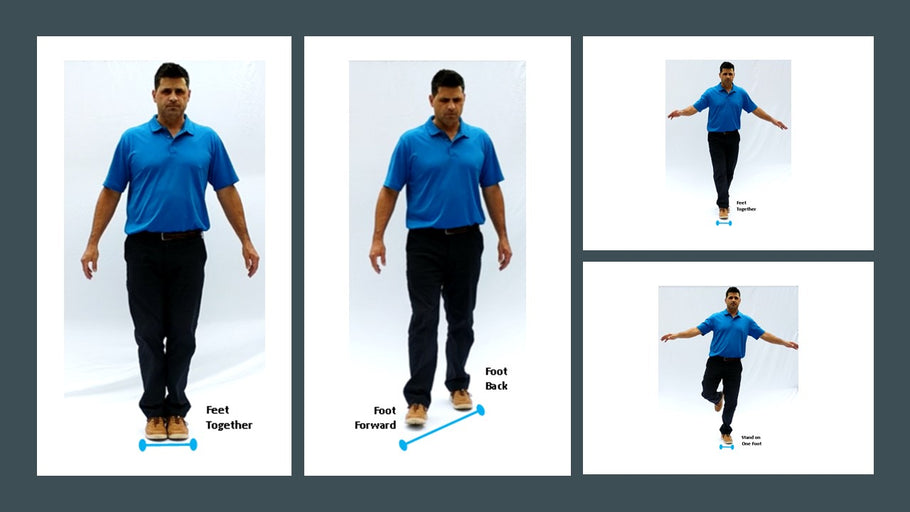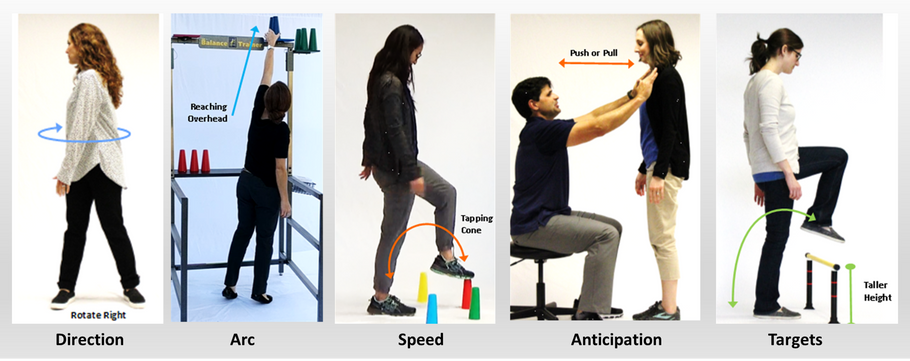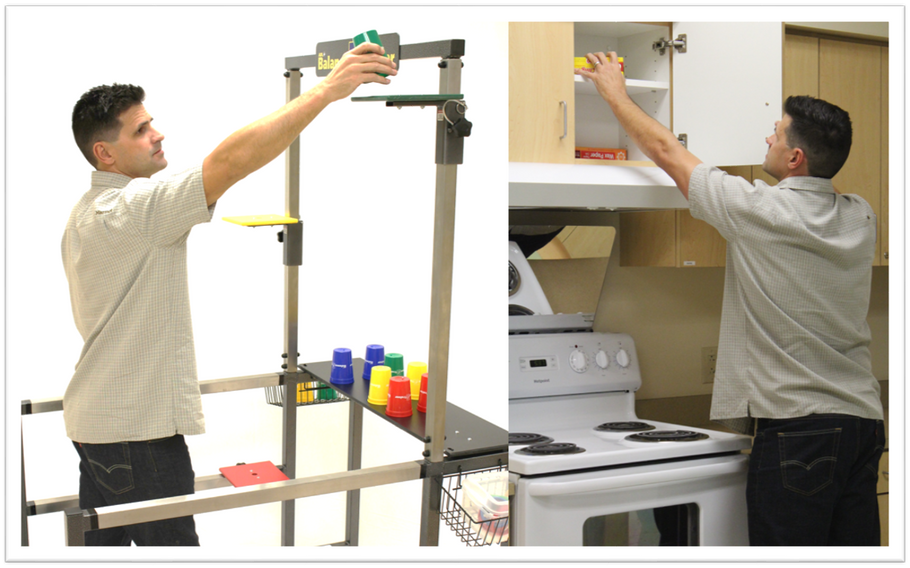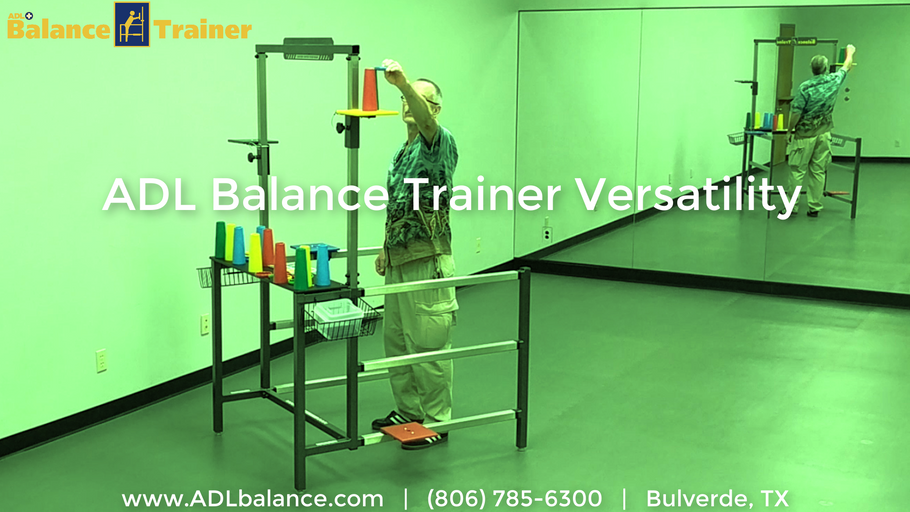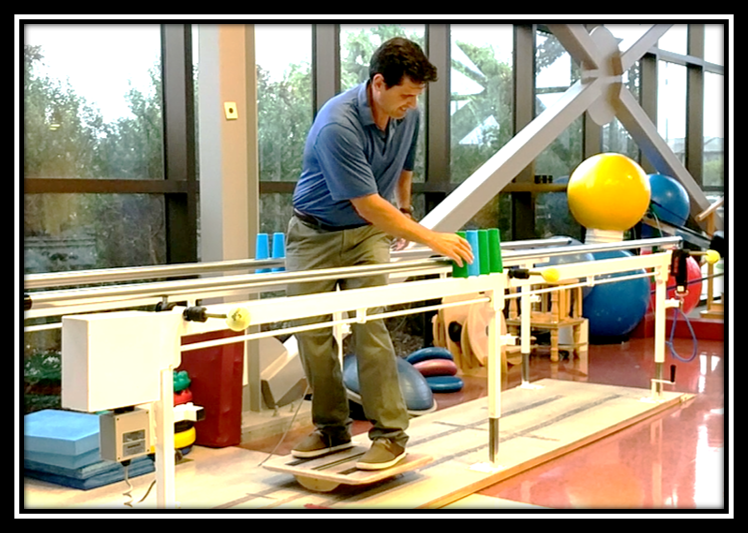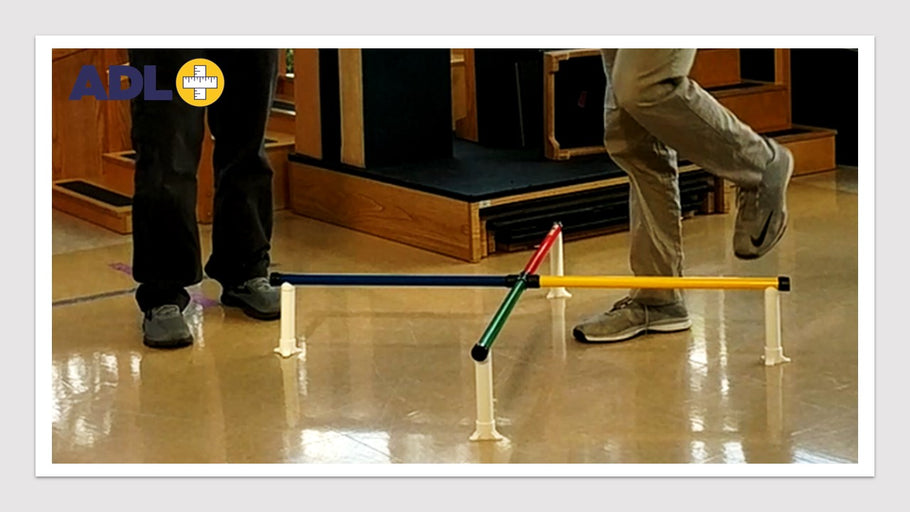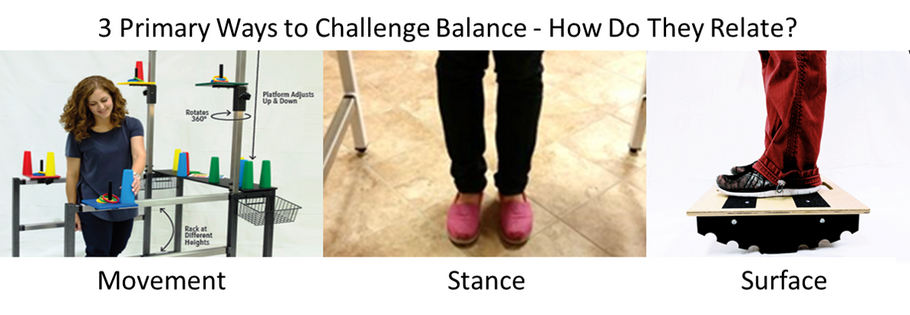ADL Balance Blog
Crosswalk #3: Tinetti Performance Assessment and Haas Balance Book
The Tinetti Performance Oriented Mobility Assessment Tool (Tinetti) is a standardized assessment tool for balance and gait that helps establish fal...
Crosswalk #2: Dynamic Gait Index and Haas Balance Book
The Dynamic Gait Index (DGI) is a standardized assessment tool for rating dynamic balance, gait, and fall risk. Based on results of the DGI, exerci...
3 Ways to Better Use Therapy Cones for Balance
If you use cones in therapy for reaching and/or balance exercises, check out the following 3 low and no cost ways listed below to help you get more...
Crosswalk #1: Berg Balance Scale & Haas Balance Book
The Berg Balance Scale is a standardized assessment tool for balance. A common strategy for choosing balance exercises is to examine items with low...
Surface Matters for Static Balance
Surface is the composition of the ground on which the patient is balancing. Surfaces that are soft, unstable, sloped (hills), or uneven (thre...
Take a “Stance” on Balance
Stance is the position of the feet and legs in standing. Stance has a primary impact on balance, along with movement and surface. Stances that requ...
5 Ways Movements Affect Balance
Movement is defined as a change in body position or location. In addition to stance and surface variables, movement has a primary impact on balance...
Not Functional? Not True.
On occasion, I hear feedback that the ADL Balance Trainer is not "functional." We clearly promote it as a functional training product, heck it is e...
ADL Balance Trainer Versatility
The ADL Balance Trainer is a versatile piece of equipment. Below is short video showing variety of balance challenges with the Trainer. It focuses ...
The Balance Bias
There is a bias with balance training and it affects the way we challenge patients. The bias is not negative in any way, rather it helps direct how...
Product Spotlight: ADL Quadrant Hurdle
The ADL Quadrant Hurdle was created to improve dynamic standing balance, specifically the ability to step over small obstacles. The need to avoid o...
Balance Training is a Choice
There are a wide variety of ways to challenge balance, including different stances (feet together, tandem, single leg, etc.), surfaces (foam, hip s...

